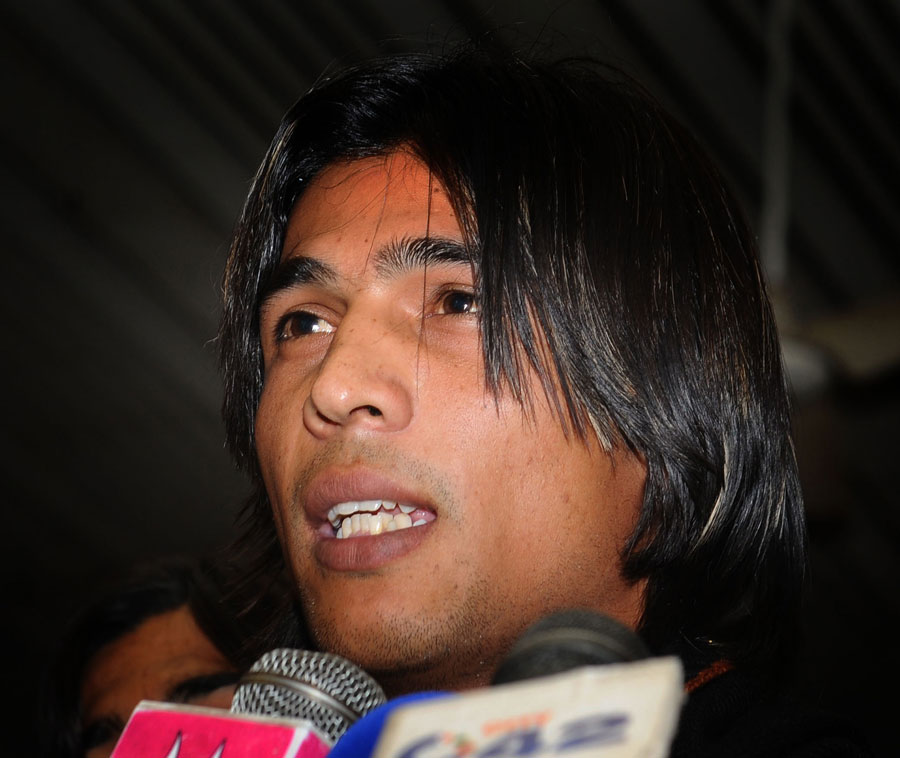Ched Evans is a footballer trying to resurrect his career. He is also a convicted rapist. Evans says he is innocent and since his release from prison he is looking for a new football team. First, he made plans to train with his old club, Sheffield United, but the public outcry was such that Sheffield United distanced themselves from him. Any subsequent opportunities with other clubs have ended abruptly following protests and threats by sponsors to end deals. Evans and his supporters argue that he deserves a chance at rehabilitation.
A few weeks ago, Ramiz Raja questioned the rush to return Mohammad Amir to professional cricket. The crimes of Amir and his fellow spot-fixers are different to that of Evans, of course, but the principle championed by Amir's supporters is the same, that he deserves a chance at rehabilitation. Ramiz spoke from the heart, of how it would feel for other players to welcome back a cheat. Pakistan's linguistic innovator has also worked as chief executive of the Pakistan Cricket Board. He speaks from board and broad experience.
Rehabilitation of offenders is an important principle that has benefits for individuals and society. No doubt that Evans and Amir and other sportsmen who commit a crime during their sporting careers have every right to be rehabilitated, but the question is whether or not they have an automatic right to be rehabilitated back into the sport they have dishonoured?
Some professions take criminal conduct so seriously that practitioners can be disbarred or struck off. The medical and legal professions are prime examples. Decisions to end careers are difficult. Professional bodies, for example the General Medical Council and the Bar Council in the United Kingdom, are responsible for making judgements on whether or not individuals are fit to practise. Hence, a barrister who has committed rape or a doctor who has made fraudulent financial claims for patient treatments will probably be judged by the relevant professional council to be unfit to remain in the profession. A doctor or barrister can be rehabilitated into society, find alternative work, but any career as a doctor or barrister will be finished.
Some professions take criminal conduct so seriously that practitioners can be disbarred or struck off. The medical and legal professions are prime examples
Society rightly demands high standards of doctors and barristers since they hold positions of influence and power. A professional sportsman is influential too, even powerful, especially in a privileged position as a role model to thousands and millions of adoring fans. Why then should a sportsman have an automatic right to return to a profession? Why shouldn't he be judged by high standards too? Role models are immensely powerful in sport and brushing over serious misdemeanours risks diminishing the gravity of the crimes. Rehabilitation back into the sport might cause offence to team-mates, fans and victims. Being disqualified from a sport might be the most powerful deterrent to future spot-fixers and rapists.
None of this reduces the onus on society and professions to support the rehabilitation of offenders. Each case requires careful consideration by a suitably qualified governing body equipped to make judgements on the seriousness of offences. But just like other professions of influence and power, rehabilitation shouldn't necessarily mean rehabilitation back into a sport. Unlike medicine and law, sport isn't geared up to make such sensitive and profound decisions. The ICC, FIFA, and national bodies like the PCB and the FA, must ensure that codes of conduct for standards of behaviour are in place and that they are enforceable.
Ramiz began to articulate that Amir and other fixers from Pakistan and elsewhere should not be rehabilitated back into professional cricket. Dissenters in England argue that Evans should not be rehabilitated back into professional football. The governing bodies of cricket and football must consider mechanisms to put the honour, reputation and values of their sports before individual and corporate gain.
This will be an unpopular view for fans who have an emotional attachment to a tainted star. Amir's case is a perfect example, tugging at our heartstrings. His role in the spot-fixing of 2010 might be judged to be too minor to bar him from cricket? But the unseemly haste to return him to international cricket reflects poorly on the PCB and ICC. A code of conduct panel for cricket might judge that other spot-fixers and match-fixers should never return to the sport. It might even decide the same for Amir?
Either way, the current systems and processes of the ICC and PCB, like the governing bodies of other sports, seem to miss the point on rehabilitation. Sport, as we are reminded each time a great player retires or moves on, is far bigger than any individual.

No comments:
Post a Comment